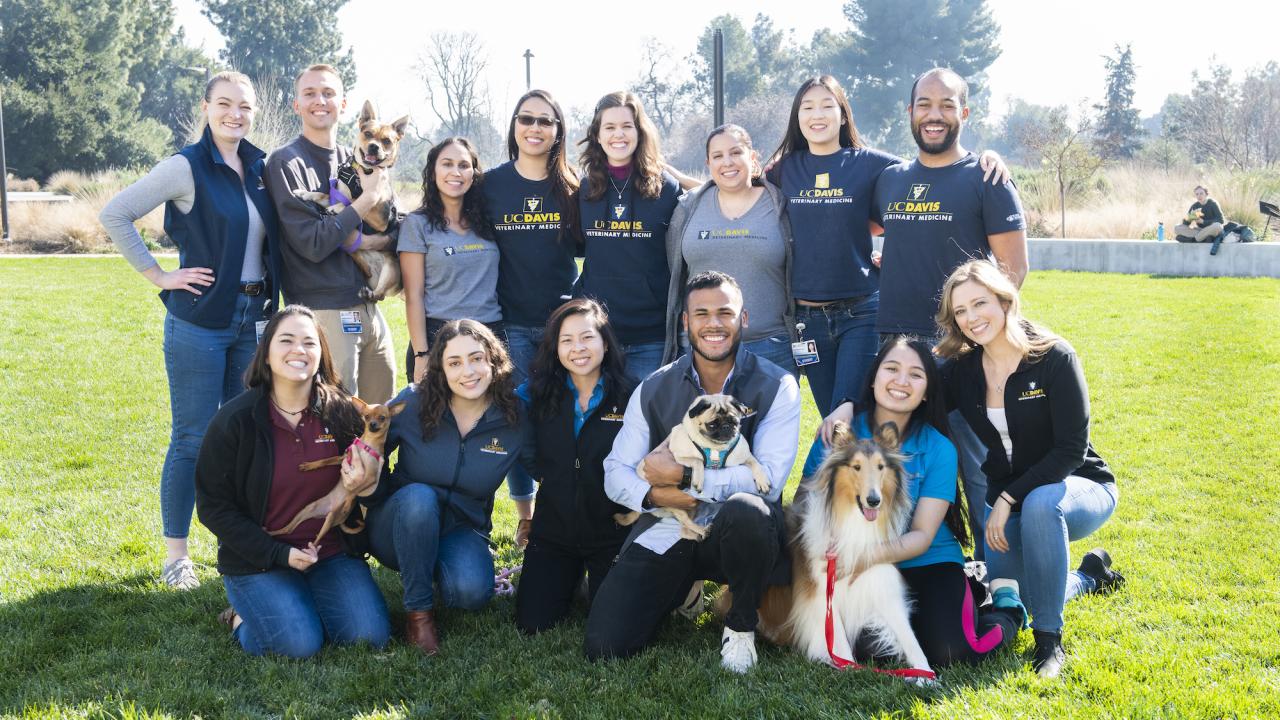
UC Davis Retains Standing as Best Value Among Veterinary Schools
UC Davis continues to offer the best value among veterinary schools, based on its number one rankings and updated financial information from the American Veterinary Medical Association (AVMA).
The AVMA recently released the 2020 Economic State of the Veterinary Profession, which includes data on veterinary schools, including information regarding the debt loads of recent DVM graduates. The report is free to AVMA members and available to anyone else at a cost.
In the latest report, the UC Davis School of Veterinary Medicine was found to:
- Have the most optimal debt-to-income ratio of all 30 U.S. veterinary schools at 0.8, an improvement from second-most-optimal last year. (Pages 17-18)
- Have the second-least median debt of any of the 30 schools, an improvement from third-least last year. (Page 14-15)
- Be one of the two schools with the highest median starting salary of graduates (the top school of the two was not identified, although in the previous year UC Davis was ranked number one). (Pages 14-15)
The debt load of UC Davis DVM graduates continues to decline. In the most recent figures available, our student debt declined 19% by median and 10% by mean when comparing 2018 to 2019 UC Davis graduates. Student debt for these new graduates came in at a median of $96,958 compared to $120,250 from the previous year’s graduates and a mean of $91,486 compared to $101,328*.
The UC Davis School of Veterinary Medicine is ranked #1 in both the world and the nation by QS World University Rankings and U.S. News & World Report.
“I’m pleased to see that we have improved our standing even further this year in this AVMA report,” said Michael Lairmore, dean of the UC Davis School of Veterinary Medicine. “With our leading educational experience and excellent financial outcomes, UC Davis remains the best value in veterinary education.”
How does UC Davis graduate veterinarians with lower debt than almost any other veterinary school?
UC Davis uses a combination of return to aid and philanthropy to keep costs low for its veterinary students. In addition, the price to attend the school has not increased significantly for California residents since 2011-12. The stability in price combined with the increases in aid have contributed to decreased debt for graduates.
The school annually awards hundreds of scholarships, provides externship funds to 4th-year students with financial need, and returns millions to aid in the form of grants to all students paying tuition and fees.
- Return to aid: Most students, at minimum, receive return-to-aid fee grants of approximately $7,100 per year plus $500 in a one-time computer technology grant which equates to approximately $28,900 over the course of four years. Resident tuition and fees are $32,127 –covering almost one year with return-to-aid alone – not considering any donor-funded scholarships.
- Scholarships: Donors to the school have generously supported scholarship funds that provide approximately $3.3 million annually to DVM students.
- Additional aid: The school provides funds for 4th-year externships and other educational activities.
In total, UC Davis provides approximately $7.6 million annually in financial assistance to its approximately 600 DVM students.
Why is lower student debt important?
UC Davis is committed to keeping veterinary school affordable, which provides benefits to society. Graduates with low debt have greater flexibility to:
- Pursue advanced scientific or clinical training, which leads to better patient care, and scientific and medical breakthroughs.
- Pursue public service careers, which generally pay lower salaries than the private sector.
- Focus their professional work on the less common veterinary specialties or underserved geographic areas.
- Give back to the profession and provide leadership/mentorship to address mental health issues in the veterinary community. Financial stress leads to reduced mental wellbeing.
To learn more about student aid, please visit our admissions information page.
To make a donation to support students, please visit our giving page or contact Hnouzong Her at svmadvancement@ucdavis.edu or (530) 752-7024.
*The calculations of mean and median student debt include all students, not just students with debt, which is the common method for presenting the data.
